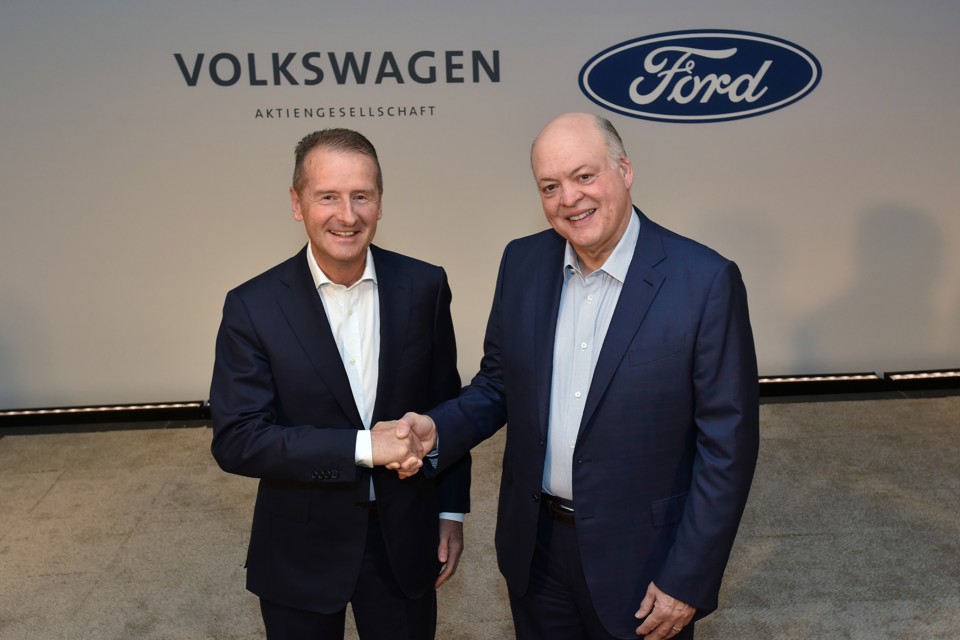Ford Motor Company and Volkswagen AG have announced the expansion of their global alliance to collaborate on a shared autonomous vehicle platform, shared use of Volkswagen’s electric vehicle technology and the development of commercial vans and medium pickups.
The autonomous vehicle platform company, called Argo AI, will see a joint investment of more than $7 billion. Argo AI’s self-driving system (SDS) is the first with commercial deployment plans for Europe and America and will allows both manufacturers to independently integrate the system into their respective vehicles.
Ford and Volkswagen will hold equal stakes in Argo AI, and combined, Volkswagen and Ford will own “a substantial majority”. The autonomous vehicle platform’s focus will be on delivering a SAE Level 4-capable SDS “to be applied for ride sharing and goods delivery services in dense urban areas”.
Ford President and CEO Jim Hackett, said: “While Ford and Volkswagen remain independent and fiercely competitive in the marketplace, teaming up and working with Argo AI on this important technology allows us to deliver unmatched capability, scale and geographic reach.
“Unlocking the synergies across a range of areas allows us to showcase the power of our global alliance in this era of smart vehicles for a smart world.”
In addition to the AI tie-in, Ford will become the first external manufacturer to use Volkswagen’s dedicated electric vehicle architecture and Modular Electric Toolkit (MEB) to deliver a high-volume of zero-emission vehicles in Europe, starting in 2023.
Ford expects to deliver more than 600,000 vehicles throughout Europe over six using the MEB platform over six years.
Volkswagen, which began developing its MEB architecture in 2016, is planning to build some 15 million cars across the Volkswagen Group using the platform over the next ten years.
Volkswagen CEO Dr. Herbert Diess, said: “Looking ahead, even more customers and the environment will benefit from Volkswagen’s industry-leading EV architecture. Our global alliance is beginning to demonstrate even greater promise, and we are continuing to look at other areas on which we might collaborate.
“Scaling our MEB drives down development costs for zero-emissions vehicles, allowing for a broader and faster global adoption of electric vehicles. This improves the positions of both companies through greater capital efficiency, further growth and improved competitiveness.”
The alliance will also see the creation of medium pickup trucks for global markets, due to begin in 2022, with commercial van production to follow at an as yet unspecified date.





















Login to comment
Comments
No comments have been made yet.